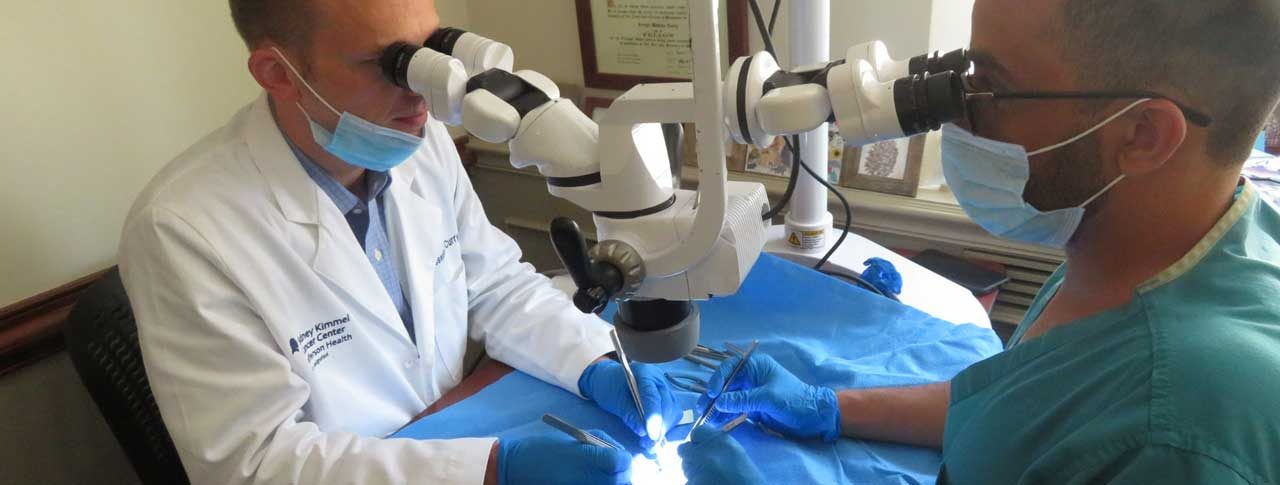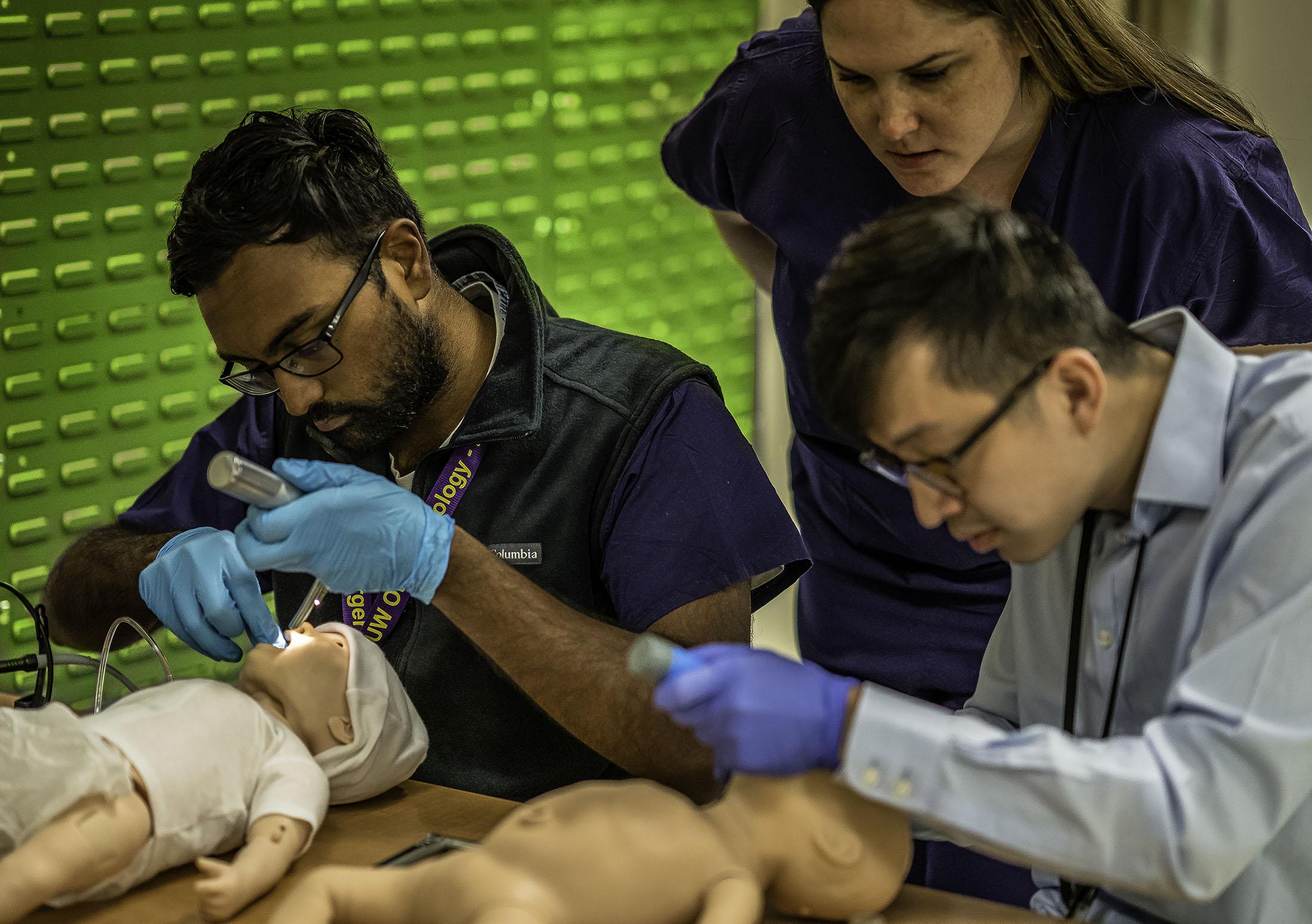Checking out the Area of Otolaryngology: What to Expect When You Get In Touch With an ENT
Otolaryngology, typically referred to as ENT, includes the medical diagnosis and treatment of throat, nose, and ear problems. For those experiencing associated concerns, getting in touch with an ENT expert can give clarity and relief. Understanding what to anticipate during such appointments is necessary for efficient communication and care. This review will detail essential facets of the ENT experience, consisting of typical factors for sees and the processes included in diagnosis and therapy.

Recognizing Otolaryngology: An Introduction
Otolaryngology, commonly described as ENT (Throat, ear, and nose) medicine, is a specialized branch of medicine that concentrates on the diagnosis and therapy of problems influencing these crucial areas of the human body. This field includes a broad range of problems, consisting of those relevant to hearing, balance, breathing function, and speech. Otolaryngologists are trained to handle both medical and medical therapies, making use of innovative methods and innovations. Their knowledge extends beyond traditional conditions, attending to concerns such as allergies, sinus infections, and hearing loss. Additionally, they play a crucial role in the administration of head and neck cancers, giving thorough care customized to specific person needs. In general, otolaryngology continues to be important for maintaining health and wellness and top quality of life in affected individuals.
Usual Factors to See an ENT Specialist
Numerous individuals seek the competence of an ENT professional for a selection of factors, showing the varied nature of problems that impact the ear, nose, and throat. Common concerns consist of persistent sinus problems, which usually brings about persistent nasal congestion and facial pain. Allergies and their linked symptoms, such as itching and sneezing, also prompt brows through to these professionals (Voice). Hearing loss, whether abrupt or gradual, is an additional substantial factor for examination. Additionally, individuals may look for assessment for throat conditions, consisting of consistent hoarseness or swallowing problems. Rest apnea, identified by disturbed breathing throughout sleep, is often attended to by ENT experts also. Each of these problems highlights the importance of specialized treatment in taking care of complex ENT-related wellness problems
Preparing for Your ENT Appointment
When getting ready for an ENT appointment, it is necessary to collect pertinent details and consider any kind of particular issues. Individuals ought to put together an in-depth case history, including previous ear, nose, or throat issues, surgical treatments, and existing medicines. Recording signs-- such as duration, extent, and regularity-- can give beneficial understandings for the ENT specialist. In addition, individuals ought to prepare a list of questions they wish to ask, guaranteeing that all problems are attended to throughout the browse through. Bringing along any type of appropriate medical documents or examination results can additionally aid the ENT in comprehending the client's condition. Clients ought to confirm their appointment information, including area, day, and time, to lessen any type of final confusion. Proper preparation can improve the performance of the appointment and lead to far better end results.
What to Anticipate During the Appointment
As the assessment starts, the person can expect to participate in a complete discussion with the ENT expert about their symptoms and case history. The expert will ask about the duration, regularity, and severity of signs such as hearing loss, nasal blockage, or aching throat. Furthermore, the person's previous clinical problems, medicines, and any kind of relevant household background will certainly be examined, helping the professional in forming a full understanding of the patient's health. The ENT might likewise ask about lifestyle factors, such as exposure to toxic irritants or irritants. This open discussion establishes a structure for the consultation, guaranteeing that the patient's worries are dealt with and setting the phase for any kind of essential assessments or recommendations for therapy.
Diagnostic Tests and Procedures in Otolaryngology
A variety of analysis examinations and treatments are essential in otolaryngology to accurately review and identify conditions impacting the ear, throat, and nose. Usual tests include audiometry, which measures hearing feature, and tympanometry, evaluating middle ear stress. Nasal endoscopy allows visualization of the nasal flows and sinuses, while laryngoscopy takes a look at the throat and singing cables. Imaging strategies, such as CT scans and MRIs, provide thorough sights of head and neck structures. Allergic reaction testing may also be conducted to identify triggers for sinus or breathing concerns. These diagnostic devices allow ENT specialists to develop a detailed understanding of people' conditions, making certain tailored and efficient monitoring strategies. Appropriate medical diagnosis is important for effective treatment outcomes in otolaryngology.
Treatment Choices Offered by ENT Specialists
ENT specialists offer a variety of therapy alternatives customized to address details problems affecting the nose, throat, and ear. These treatments range from traditional methods, such as medicine and way of life alterations, to more invasive procedures. Allergic reactions may be taken care of with antihistamines or immunotherapy, while persistent sinus problems might call for nasal corticosteroids or sinus surgical treatment. For hearing loss, ENT specialists typically suggest listening devices or surgical interventions like cochlear implants. In instances of throat disorders, alternatives can include speech treatment or procedures to get rid of obstructions. Additionally, they may supply advice for taking care of sleep apnea, including making use of CPAP tools or medical treatments. her comment is here On the whole, the goal is to boost people' quality of life via personalized care and reliable treatment approaches.
When to Seek Follow-Up Treatment With an ENT
When to seek follow-up treatment with an ENT expert is vital resource for handling recurring symptoms or complications connected to ear, nose, and throat problems, acknowledging. People must consider setting up a follow-up visit if signs persist despite preliminary therapy, such as persistent ear discomfort, nasal blockage, or throat pain. Modifications in hearing, balance issues, or unusual nasal discharge might also warrant more assessment. In addition, if a client experiences negative effects from suggested medications or has actually gone through a procedure, follow-up treatment is essential to check healing and address any kind of issues. Prompt assessments can ensure effective monitoring of problems, avoid prospective issues, and supply tranquility of mind pertaining to one's wellness. Seeking follow-up treatment advertises aggressive health administration in otolaryngology.
Often Asked Questions

What Certifications Should I Look for in an ENT Expert?
When seeking an ENT expert, one must try to find board accreditation, relevant experience, and solid individual testimonials. In addition, efficient interaction skills and a compassionate strategy can considerably improve the overall therapy experience.
Just how Do I Select the Right ENT for My Needs?
Selecting the best ENT expert involves assessing their certifications, experience, and person reviews (ENT). It is necessary to consider their communication style and approach to treatment, guaranteeing they straighten with the individual's details health and wellness demands and preferences
Exist Any Kind Of Risks Connected With ENT Procedures?
The dangers linked with ENT treatments might consist of infection, blood loss, anesthesia difficulties, and potential damage to surrounding frameworks. People should go over these risks with their doctor to understand private concerns and guarantee informed decisions.
How Can I Take Care Of Anxiety Before My ENT Appointment?
To handle anxiousness before an appointment, individuals can exercise deep breathing workouts, picture positive results, prepare concerns beforehand, and look for support from friends or family, fostering a feeling of confidence and calmness.
What Should I Do if I Experience Adverse Effects From Therapy?
The individual must promptly report them to their healthcare supplier if side impacts from therapy occur. Adjustments to treatment or added treatments might be discover here necessary to assure safety and security and performance in managing their condition - ENT surgery. As the assessment starts, the person can expect to involve in a thorough discussion with the ENT professional regarding their symptoms and clinical background. These diagnostic tools allow ENT experts to establish an extensive understanding of patients' conditions, ensuring customized and efficient management plans. ENT experts supply a variety of therapy options tailored to address certain problems affecting the nose, ear, and throat. When looking for an ENT expert, one should look for board qualification, relevant experience, and solid person testimonials. Choosing the right ENT specialist involves evaluating their qualifications, experience, and individual reviews